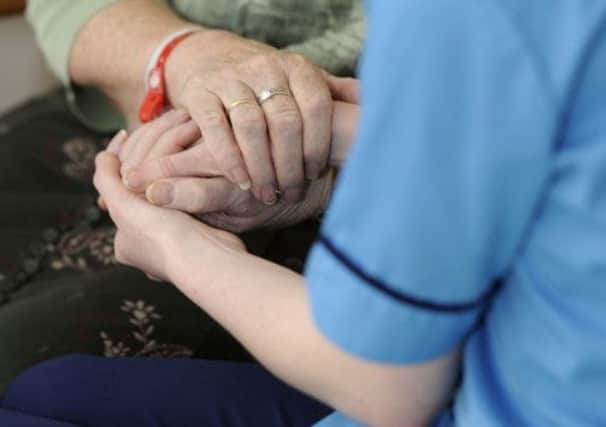Call for ‘genuine’ seven-day working in hospitals


A meeting organised by the Royal College of Physicians of Edinburgh (RCPE) heard that patients were being put at risk due to a demand for hospital beds, meaning they were moved to inappropriate wards.
In a “consensus statement”, that will be passed to the UK and Scottish governments, the experts called for this practice to be eliminated from the NHS.
Advertisement
Hide AdAdvertisement
Hide AdTo help achieve this, they said more senior staff and hospital services should be available out-of-hours to improve the flow of patients through the system.
They said this “genuine seven-day working” would ensure patients had the best care, regardless of when they needed it.
While many doctors and other staff do work weekends and evenings, there have been calls for the NHS to further extend out-of-hours availability, including more doctors on site rather than on call at home.
Concern has also been raised about the quality of care over the weekend, with the man in charge of England’s accident and emergency departments recently saying he would be worried if a relative were admitted to hospital at the weekend because of a shortage of consultants.
The RCPE conference, attended by more than 160 senior doctors, nurses and other health professionals from across the UK, heard that growing pressure on hospital capacity, including from an ageing population, meant patients were not always admitted to the ward most appropriate for their care.
Research has found that this practice – known as boarding – increases the risk of death, lengthens hospital stays and means patients are more likely to need to be readmitted.
The preliminary results of evidence presented during the conference, including a study of more than 2.5 million hospital admissions in Scotland, backed up these claims.
The meeting made several recommendations to improve the provision of urgent care in Scotland and across the UK.
Advertisement
Hide AdAdvertisement
Hide AdAs well as an extension of seven-day working, it also called for dedicated medical teams to be responsible for regularly reviewing patients.
Nigel Edwards, chair of the RCPE Consensus Panel, said: “Growing demand from an ageing population with increasingly complex care needs bring both challenges and opportunities for the NHS.
“It is clear that in seeking to respond to the urgent care needs of this population, fundamental change is required.”
Dr Mike Jones, RCPE vice-president, said: “It is clear that the time has come for seven-day working to be introduced, to provide the level of care that patients require.”
Royal College of Nursing Scotland director Theresa Fyffe said more staff would be needed to help achieve the group’s aims.
Scottish health secretary Alex Neil said boarding needed to be tackled, but would not give a timeframe for when it would eliminated in Scotland.
He backed calls for increased seven-day working in the NHS.
Scottish Conservative health spokesman Jackson Carlaw said turning the NHS into a seven-day operation was at the heart of party policy.
SEE ALSO: